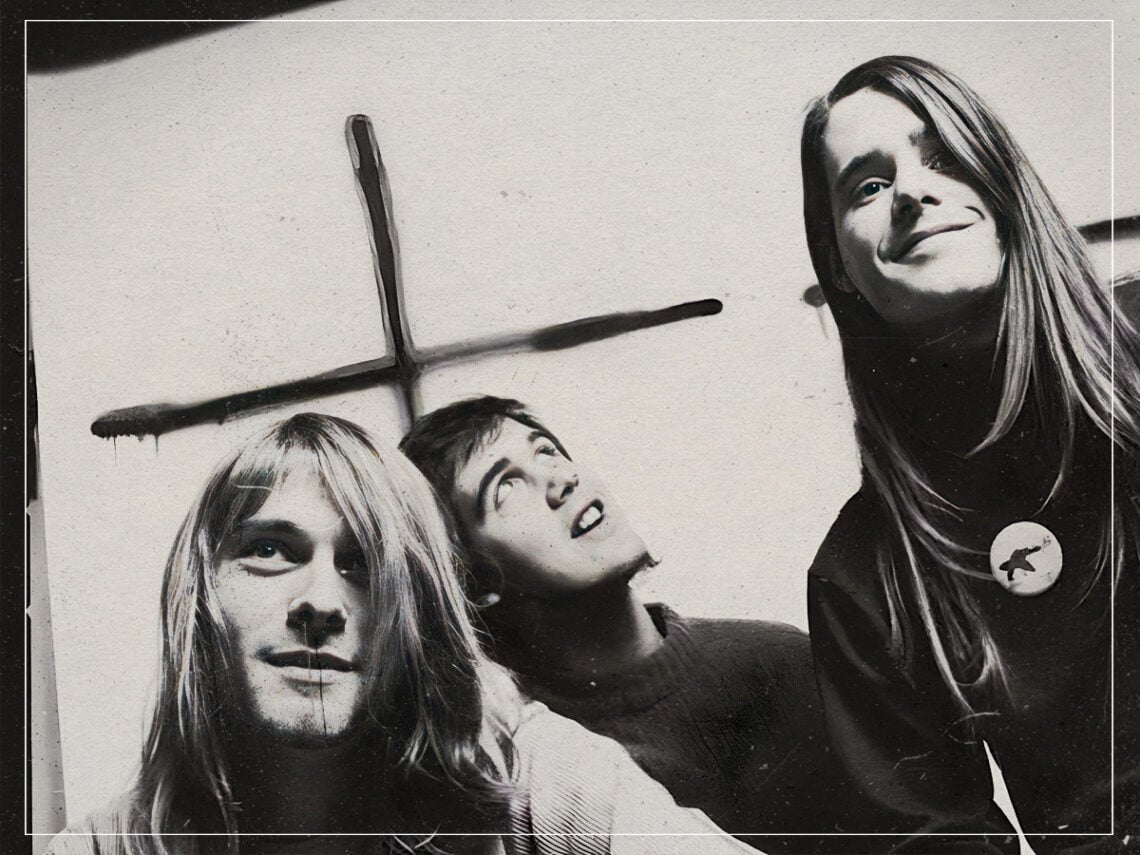For many, the word “Nirvana” has become more associated with and emblematic of the grunge band rather than the word alone or its etymological significance. The name has transcended linguistic boundaries to become so deeply embedded in cultural consciousness that envisioning the band adopting any other moniker feels almost impossible. This choice not only mirrors the band’s aesthetic and sound but reflects the group’s very essence in more ways than one.
Despite its importance in today’s culture, however, the band went through a number of names before eventually settling on Nirvana. As such, they first cycled through Skid Row, Pen Cap Chew, Bliss, and Ted Ed Fred. The curtain rose on the name Nirvana for the first time in 1988, within the intimate confines of the Community World Theater in Tacoma, Washington, sharing the stage with Lush and Vampire Lezbos.
Cobain’s design of the concert flyer showcased a tribute to the band’s past names: “Nirvana (also known as… Skid Row, Ted Ed Fred, Pen Cap Chew, Bliss).” Cobain articulated the rationale behind this decision, explaining, “I wanted a name that was kind of beautiful or nice and pretty instead of a mean, raunchy punk name like the Angry Samoans”.
Nirvana’s name was also particularly fitting of Cobain as it reflected his interest in Buddhist philosophy and his broader artistic and philosophical inclinations. In Buddhism, “Nirvana” signifies a state of ultimate liberation and enlightenment. It represents the cessation of suffering and desire, marking the culmination of a spiritual journey. Cobain was drawn to the concept’s profound meaning and its connotations of transcendence and freedom from suffering.
The name “Nirvana” perfectly captured the band’s ethos while resonating with Cobain’s worldview, combining his musical aspirations with his philosophical leanings. The term’s significance went beyond mere linguistic symbolism; it encapsulated a sense of artistic and personal liberation that resonated deeply with Cobain and his bandmates.
In essence, the choice of the name “Nirvana” not only aligned with Cobain’s interests and beliefs but also contributed to the band’s mystique and their association with themes of introspection and artistic depth. Unlike other similar bands at the time, Nirvana stood out in particular because it didn’t reflect those around them, including those who proudly wore the anti-social attitude as a barrier to the outside world. Cobain wanted to express his art differently, with a new sense of integrity that the genre lacked at the time.
Nirvana is dignified, and so was Cobain’s worldview. If there was something he didn’t agree with, he voiced it. He didn’t want to go down in history as another gritty, angry, angst-fuelled punk band; he wanted to stand for something, and a name like “Nirvana” tells you all you need to know.



